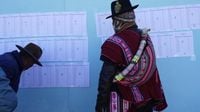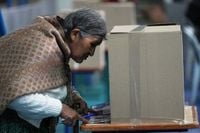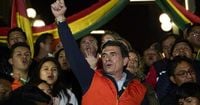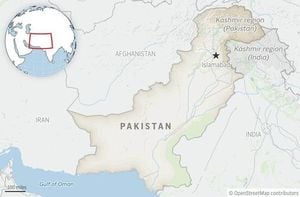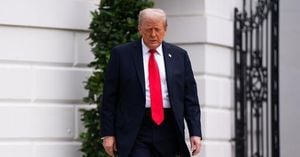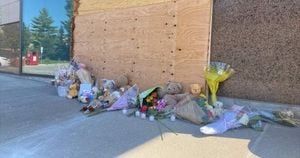Bolivia, a country long seen as a bastion of left-wing politics in South America, is now on the cusp of a political transformation. After more than two decades of near-uninterrupted rule by the Movement Toward Socialism (MAS) party, the nation’s August 17, 2025, presidential election has upended the status quo, sending voters back to the polls for an unprecedented runoff on October 19. It’s a shift few anticipated, and it comes at a moment of deep economic turmoil and political disillusionment.
With over 91% of ballots counted, centrist Senator Rodrigo Paz emerged as the surprise front-runner, securing 32.8% of the vote—far ahead of the MAS candidates, but not enough to win outright. Former President Jorge “Tuto” Quiroga, representing the right, finished second with 26.4%. Since no candidate surpassed the 50% threshold (or 40% with a 10-point margin), the two will now face off in Bolivia’s first presidential runoff since the country’s return to democracy in 1982, according to the Associated Press.
“This economic model must change,” Paz declared to jubilant crowds chanting, “Renewal!” His campaign’s unexpected surge has been attributed in part to his partnership with Edman Lara, a former police captain and social media personality with strong evangelical backing. Lara, dismissed from the force after exposing corruption, has become a symbol for Bolivians weary of both left- and right-wing political elites. “The MAS members are not going to return to power, the traitors are not going to return to power,” Lara told supporters, as reported by AP. “We are going to give a signal that we do not want the old political caste of the left and the right anymore, we are tired of the same old people.”
That message resonated, particularly in El Alto—a city perched high above La Paz, long considered a MAS stronghold. There, Lara’s rallies drew hundreds, with chants like “El Alto, never on its knees!” and “Lara, friend, El Alto is with you!” echoing through the streets. The shift in El Alto’s political mood is telling: once the launchpad for Evo Morales’ historic presidency, the city’s residents have grown impatient with MAS’s heavy-handed governance and the economic hardship that has followed.
The numbers tell the story of a party in decline. The official MAS candidate, Eduardo del Castillo, finished a distant sixth with just 3.2% of the vote. Andrónico Rodríguez, the 36-year-old Senate president and once considered MAS’s best hope, managed only 8%. The party’s collapse is intertwined with Bolivia’s economic woes: inflation has skyrocketed from 2% less than two years ago to 25% as of July 2025, fuel is scarce, and a shortage of U.S. dollars has left the country struggling to import essentials like wheat, as reported by multiple sources including AP and KOB.
MAS’s founder, Evo Morales, who expanded Indigenous rights and funneled natural gas profits into social programs during his 14 years in power, has seen his legacy tarnished by allegations of corruption, authoritarianism, and personal scandal. Morales, now evading an arrest warrant over accusations of impregnating a 15-year-old girl during his presidency, has been holed up in his stronghold of Chapare. Barred from running by term limits, he branded Rodríguez a traitor for competing and called on his supporters to cast null or void ballots. The result? An unusually high 19% of votes were invalid—more than triple the usual rate, reflecting widespread frustration and disillusionment among MAS’s traditional base.
The election wasn’t without its tense moments. In Chapare, a dynamite stick exploded near the school where Rodríguez was set to vote, and pro-Morales crowds later assaulted him with bottles and rocks. Rodríguez described it as a “difficult moment,” but overall, voting proceeded with only minor disruptions, authorities said.
For many Bolivians, the choice ahead is fraught with uncertainty. Paz has positioned himself as a centrist alternative, promising change but rejecting the harsh austerity measures championed by Quiroga and other right-wing figures. He’s distanced himself from pledges to sell Bolivia’s lithium reserves to foreign companies or seek IMF bailouts, instead advocating for spending cuts, hiring freezes, and tax amnesties. Quiroga, by contrast, has called for a return to neoliberal policies and international loans—approaches that many Bolivians associate with the economic instability of the 1990s and early 2000s.
“If they couldn’t govern well before, what makes us think they’ll do it now?” asked Yaitzel Poma, a 30-year-old Paz supporter in La Paz, referring to the right-wing candidates. Her skepticism is widely shared. Bolivians remember how Morales rose to power in 2006 by promising an end to free-market experimentation and foreign dependency. Now, after years of populist, state-directed policies, the country faces the prospect of belt-tightening and potential reconciliation with the United States following a period of close ties with China and Russia.
Yet, even Paz is no stranger to Bolivia’s political establishment. The 57-year-old senator is the son of former President Jaime Paz Zamora, a figure whose own career spanned the revolutionary left and later pragmatic alliances with the right. Critics, like Andean Information Network director Kathryn Ledebur, are wary: “What we’re doing is moving back in time. This is not a new actor with dynamic policies. He’s a surrogate for the reconstruction of the traditional right.”
As the October 19 runoff approaches, the race is wide open. Quiroga congratulated Paz on his lead, calling the results “unprecedented” and declaring, “Bolivia told the world that we want to live in a free nation.” Paz, meanwhile, has tried to harness the desire for renewal among merchants, self-employed workers, and transporters—groups hit hardest by the economic crisis.
For voters like Luis Carvajal, a pastry shop owner who left his law career over judicial corruption, the appeal of Paz and Lara is clear. “Lara is new. He’s not a politician who’s lived off politics his whole life,” Carvajal told AP. “In Bolivia, justice is bought. That’s why Lara’s message about corruption is very important. Bolivia needs policies against corruption now.”
Still, whether Bolivia chooses Paz’s centrist pragmatism or Quiroga’s conservative promises, the country’s next leader will inherit a nation weary of broken promises and economic hardship. As Elisa Belecoña Calarara, a Paz-Lara supporter, put it: “We’re done with the MAS. It’s led us into decay and now we’re poor because of it.”
The coming weeks will test Bolivia’s appetite for change—and its ability to chart a new course after decades of political turbulence and economic uncertainty.
